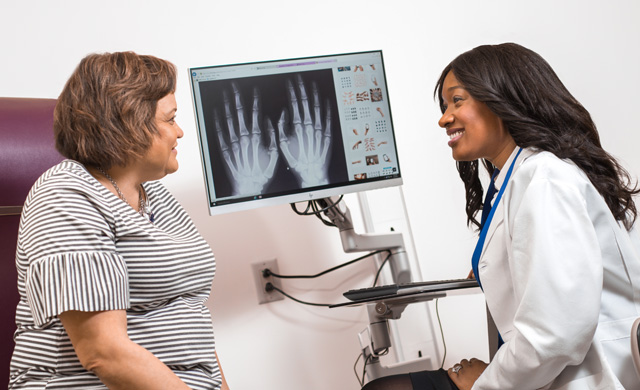Arthritis
Arthritis is a widespread but largely misunderstood condition that causes joint pain. There are many kinds of arthritis, but rheumatoid arthritis, hand arthritis, and wrist arthritis are among the most common.
By working with your primary care doctor and one of our rheumatologists, we’ll find solutions for easing flare-ups and managing the pain of arthritis. Medications, physical therapy, and sometimes surgery can help.
Autoimmune Diseases
Any disease in which your body’s immune system attacks healthy cells is considered an autoimmune disease. With more than 80 kinds of recognized autoimmune diseases in existence, the process of getting a firm diagnosis can take time. We’ll use a variety of tests — including an antinuclear antibody (ANA) test — and an assessment of your symptoms to diagnose you. Treatments can vary, but reducing inflammation is typically a primary goal.
Gout
Gout, a type of arthritis, occurs when a buildup of uric acid causes painful inflammation in your joints — most often in the smaller bones of your feet. We can use a range of blood tests, X-rays, ultrasound, and CT scans to diagnose gout. We’re then able to recommend medications and lifestyle changes to help ease your symptoms and prevent flare-ups.
Lupus
Lupus, an autoimmune disease in which your immune system attacks its own healthy cells and tissues, can damage any part of your body — from your joints or blood vessels to your organs or brain. No single test can detect this complex condition. We use a combination of blood and urine tests, as well as physical exams, to diagnose lupus. Once you’re diagnosed with lupus, we can work carefully with you over time to minimize its effects and symptoms through a combination of medications and lifestyle choices.
